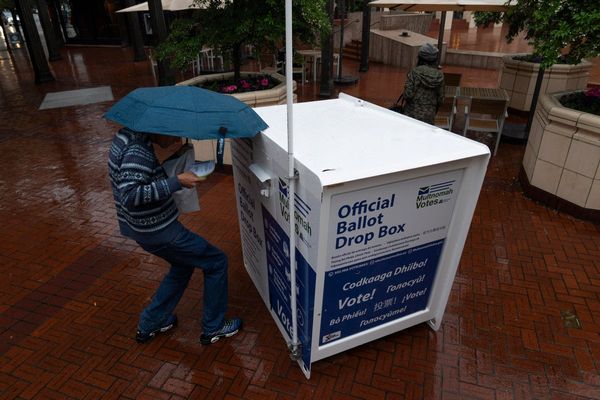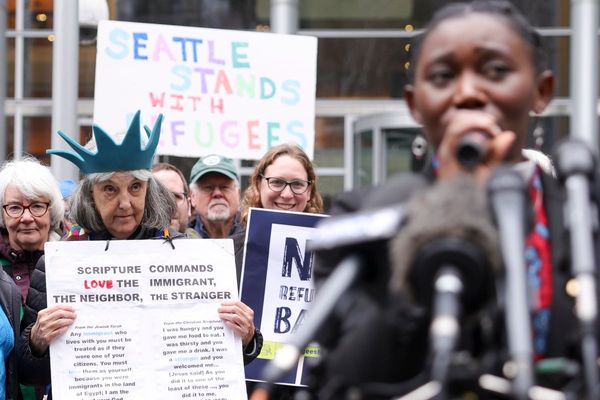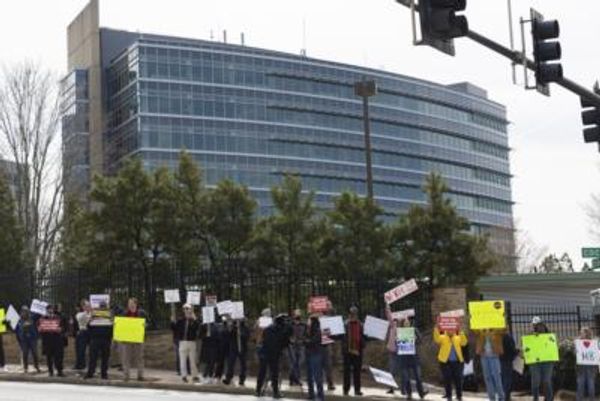
Has Rishi Sunak’s week from hell saved his neighbour in No 10? Until recently the chancellor was seen as the safest choice to replace Boris Johnson if MPs decided the prime minister’s position was untenable.
The chancellor had positioned himself as the antidote to chaos in Downing Street, using some of Johnson’s most difficult moments to force through his favoured policies such as the national insurance rise.
But now he has lost his moral high ground after being given a fixed-penalty notice along with the prime minister for attending a lockdown birthday party.
Much has changed since “red wall” Tory MPs met in January to launch “the pork pie plot” to submit letters of no-confidence in Johnson’s leadership amid almost daily revelations about lockdown-breaching parties in Downing Street.
There was a consensus among more experienced MPs that Johnson should only be challenged when a vote of no confidence could be sure to succeed – meaning a significant number held off sending in letters to the 1922 Committee. The moment to send the letters would be when Johnson was given the penalty, they said.
Some still believe more letters could yet go in now fixed-penalty notices have been issued. One predicted Sunak would decide his position was untenable and resign – which could put pressure on the prime minister to do the same.
Sunak apologised “unreservedly” after receiving the notice, and appeared to put to rest any notions of stepping down by declaring he was “focused on delivering for the British people at this challenging time”.
But in the immediate aftermath of the penalties, most MPs are pausing for thought. One senior MP, a critic of Johnson, said they were close to despair at their colleagues. Another admitted that “timing has been on the PM’s side” with the delay in the Met’s investigation and with the announcement coming while most MPs are away for Easter recess.
At least three public critics of the PM have now argued against a challenge – Sir Roger Gale, the Scottish Tory leader, Douglas Ross, and Andrew Bridgen.
Gale said he believed the PM should not lead the party into the next election but said rebels must wait. Bridgen said the war in Ukraine meant a challenge was impossible but this was “not the end of this matter”.
Robert Goodwill, a former Home Office minister, said he was deeply concerned by the prospect of a leadership void should things escalate in Ukraine, especially when the west has warned of reprisals if Russia uses chemical weapons. “The person who would most welcome a leadership contest would be President Putin,” he said.
But for others, there is a more self-serving reason to swerve a contest: the absence of a plausible successor. “Successors are all damaged, from national insurance or visas or silly remarks, that means an unpredictable contest and you can’t have that in a war,” one MP said.
Most MPs had been comfortable with the prospect of Sunak replacing Johnson, even if he was not their first choice. Although there were always some doubts about Sunak’s ability to connect with the public, many MPs admired his handling of the pandemic, his lockdown scepticism and his desire to get a hold on public spending.
But after a week of headlines about his wife’s non-dom status which brought his enormous family wealth into the spotlight, ill feeling exploded towards the chancellor from MPs already irritated by the rise in national insurance and a spring statement lacking tangible extra support for the cost of living crisis.
Liz Truss, once seen as the members’ darling, is not widely popular with colleagues who were unnerved by some of the comments she has made as foreign secretary, including that Britons should travel to fight in Ukraine.
Priti Patel has seen her star fall after a series of Home Office scandals, Michael Gove would be unlikely to succeed on his third attempt and Sajid Javid has recently had to admit himself that he was a non-dom before coming into parliament. As things stand, Ben Wallace, the defence secretary, is the only cabinet minister to garner any sort of praise from MPs.
Outside the cabinet, Jeremy Hunt is still viewed with suspicion by many Brexiters and the outsider candidate, Tom Tugendhat, has no ministerial experience.
Much could change in the coming weeks – especially with local elections and an extremely tricky byelection potentially on the horizon in Wakefield. “I think the elections are the real test now,” one MP said. “I’m sure the PM will be interested to see what the voters really make of all this.”







